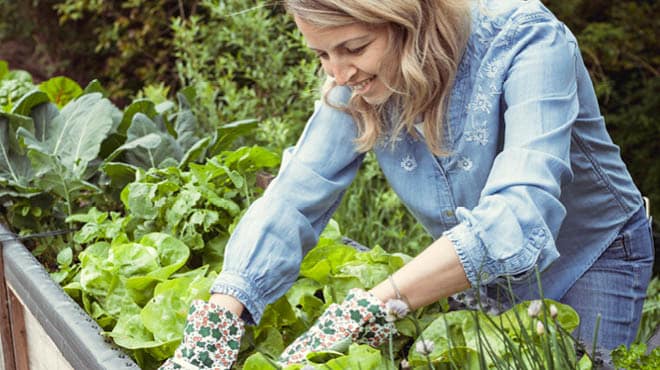Sustainable Gardening Practices for an Eco-Friendly Yard
Sustainable Gardening Practices for an Eco-Friendly Yard
Blog Article
Opening the Advantages of Gardening: A Detailed Take A Look At the Various Kinds and Their Influence on Wellness
Exploring the complex advantages of gardening discloses a range of methods that dramatically boost private well-being. As we examine these diverse gardening strategies, it becomes obvious that their influence can resonate on personal, social, and environmental levels, prompting a closer look at just how these links develop a cohesive story of all natural health.
Kinds of Gardening
Blossom gardening, an additional preferred classification, highlights the aesthetic charm of cultivated flowers. This type can improve landscapes and promote biodiversity by bring in valuable pollinators. Natural herb gardening entails growing fragrant and culinary plants, adding both to food preparation and natural treatments.
Container gardening deals adaptability, enabling individuals with limited area to participate in horticulture by utilizing pots and planters. This approach is specifically preferred in city settings. Increased bed gardening, on the other hand, includes producing raised stories that boost dirt drainage and access, making it simpler for garden enthusiasts to manage their plants.
Last but not least, area horticulture cultivates collaboration among people in shared spaces, promoting social interaction and collective obligation. Each sort of gardening serves distinctive purposes and provides to various preferences, making gardening a functional task that can be customized to specific requirements and settings.
Mental Health Advantages
Participating in different kinds of horticulture not only yields concrete benefits such as fresh produce and lovely flowers but additionally uses substantial mental wellness advantages. Research shows that horticulture can be a powerful tool for decreasing stress and anxiety, anxiousness, and depression. The act of tending to plants and growing a garden promotes a feeling of purpose and achievement, which can boost overall emotional wellness.
Moreover, gardening urges mindfulness, as it requires individuals to focus on today moment, whether it be planting seeds or nurturing growth. This mindfulness technique can bring about decreased rumination and boosted mood stability. The exposure to native environments throughout gardening has actually additionally been linked to improved cognitive operating and lowered sensations of tiredness.
Social interaction plays a critical role in mental health and wellness, and community gardening initiatives give chances for individuals to get in touch with others, cultivating a sense of belonging. The common experience of gardening can grow relationships and assistance networks, better strengthening emotional resilience.
Physical Health Advantages
Lots of people might not realize that horticulture also supplies substantial physical health and wellness benefits. Taking part in horticulture tasks needs a series of physical activities, including flexing, training, excavating, and planting, which collectively add to better strength, flexibility, and endurance. These activities can improve cardio health by promoting an elevated heart rate, thereby reducing the risk of heart problem.
Furthermore, horticulture can act as a moderate-intensity exercise, assisting individuals attain recommended exercise levels. Research studies suggest that regular participation in horticulture can shed substantial calories-- roughly 200-400 calories per hour, depending on the intensity of the jobs performed. Such calorie expenditure is useful for weight management and general metabolic health.
In addition, direct exposure to sunlight during gardening can help with the synthesis of vitamin D, which plays a necessary function in maintaining bone health and sustaining immune function. Moreover, the act of horticulture often involves working with soil, which has been connected to possible mental browse around this web-site and physical health benefits because of the visibility of advantageous bacteria. Gardening.
Social Links Via Horticulture
The common elements of gardening foster purposeful social links amongst individuals. Community yards, in specific, work as vibrant hubs where people from diverse histories collaborated, growing not just plants but likewise partnerships. These shared spaces encourage cooperation, permitting people to exchange expertise, abilities, and resources, thereby boosting their gardening experience and cultivating a sense of belonging.
Involvement in horticulture activities commonly results in the development of friendships and assistance networks. Participants regularly unify for usual objectives, such as growing seasons, harvest events, or academic workshops, which enhance social connections and develop a sense of neighborhood. Such interactions can ease sensations of seclusion and improve mental health, as people find friendship and friendship in shared ventures.

Environmental Influence of Gardening
Horticulture significantly adds to environmental sustainability in several ways. One of one of the most notable benefits is the enhancement of biodiversity. Home yards offer essential environments for numerous types, consisting of pollinators such as and butterflies, which are essential for ecological community wellness. By cultivating diverse plant varieties, gardeners can develop a balanced environment that sustains both vegetation website link and animals.

Moreover, gardens play a vital function in water conservation. Tactical landscapes, consisting of native plants and xeriscaping, lower water use and protect against drainage, thereby protecting local rivers from contamination.
Conclusion

The diverse kinds of gardening-- consisting of vegetable, blossom, herb, container, and increased bed-- add to mental and physical health and wellness, foster try this website social connections, and promote environmental sustainability. By engaging in gardening practices, individuals can experience improved high quality of life while additionally sustaining area bonds and ecological wellness.
Report this page